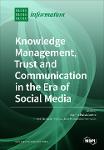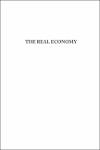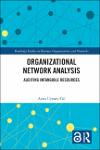Search
Author
- Federico, Neiburg (1)
- Jane I, Guyer (1)
- Paliszkiewicz, Joanna (1)
- Ujwary-Gil, Anna (1)
- next >
Subject
- Business strategy (1)
- chiến lược kinh doanh (1)
- digital media (1)
- digitalization (1)
- next >
Has File(s)
- true (3)
Search Results
This book presents the main challenges and opportunities posed by trust, knowledge management, and communication in the social media age in a manner relevant to both practitioners and scholars. The book is also useful for companies and organizations to leverage trust, knowledge management, and communication for an optimal course of action. This book aims to bring together the theory and practice of trust, knowledge management, and communication in the era of social media. The book provides a theoretical and practical background related to trust, knowledge management, and communication in the era of social media. The editor believes that the collection of articles can be relevant to professionals, researchers, and students’ needs. The authors try to diagnose the situation and show th... |
This collection highlights a key metaphor in contemporary discourse about economy and society. The contributors explore how references to reality and the real economy are linked both to the utopias of collective well-being, supported by real monies and good economies, and the dystopias of financial bubbles and busts, in which people’s own lives “crash” along with the reality of their economies. An ambitious anthropology of economy, this volume questions how assemblages of vernacular and scientific realizations and enactments of the economy are linked to ideas of truth and moral value; how these multiple and shifting realities become present and entangle with historically and socially situated lives; and how the formal realizations of the concept of the “real” in the governance of ec... |
The integrated meta-model for organizational resource audit is a consistent and comprehensive instrument for auditing intangible resources and their relations and associations from the network perspective. This book undertakes a critically important problem of management sciences, poorly recognized in literature although determining the current and future competitiveness of enterprises, sectors and economies. The author notes the need to introduce a theoretical input, which is manifested by the meta-model. An expression of this treatment is the inclusion of the network as a structure of activities, further knowledge as an activity, and intangible assets as intellectual capital characterized by a structure of connections. The case study presented is an illustration of the use of netw... |



